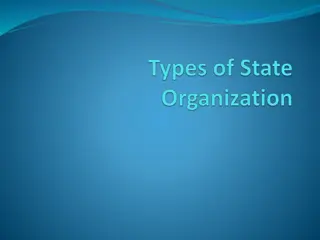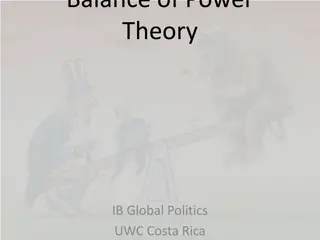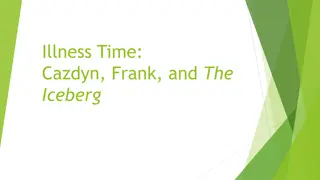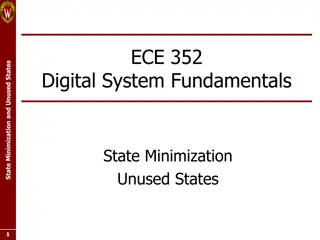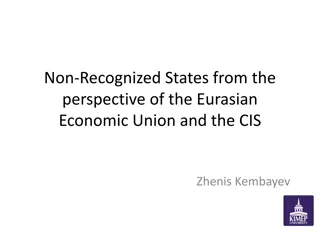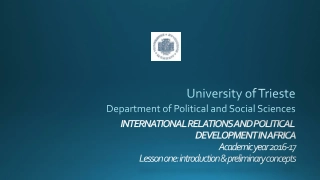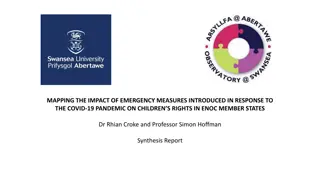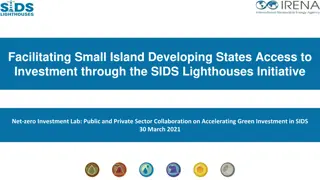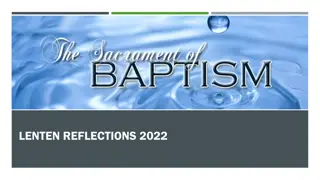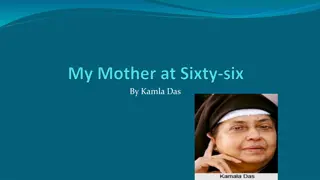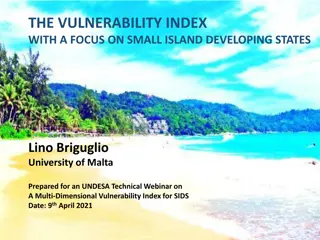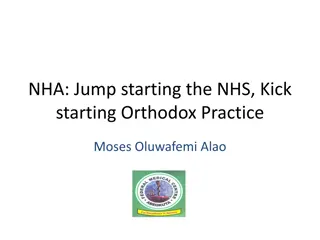Small States: Reflections and Insights
Small states like Iceland face unique challenges and benefits. Discussions revolve around the aftermath of the 2008 Icelandic bank collapse, the debate on joining the EU for shelter, historical shelters of Iceland, and the impact of small statehood on economic and political integration. Key points include the importance of economic integration, the wealth of small states through open economies, and the nuances of volatility and vulnerability. The history of small states' proliferation and the case for maintaining trade openness are also explored.
Download Presentation

Please find below an Image/Link to download the presentation.
The content on the website is provided AS IS for your information and personal use only. It may not be sold, licensed, or shared on other websites without obtaining consent from the author. Download presentation by click this link. If you encounter any issues during the download, it is possible that the publisher has removed the file from their server.
E N D
Presentation Transcript
In Defence of Small States: Reflections after the 2008 Icelandic Bank Collapse Professor Hannes H. Gissurarson NOPSA: Nordic Political Science Association Odense, 10 August 15:15
The Sibert-Thorhallsson Thesis 2008 bank collapse showed Iceland was too small She has to join the EU to get shelter Small economies more volatile Economies of scale in providing public goods Small countries more vulnerable to disasters Lack of professionalism in small states Political favouritism in small states Iceland s historical shelters : Norway, Denmark, UK, and US
Was Jon Sigurdsson Wrong in 1848? 1. Icelanders have from outset been independent, sovereign A distinct nation with her own language and culture They know better than foreign bureaucrats what is right for them Iceland should trade with all, not only with one University of Iceland established on his 100thbirthday 1911 2. 3. 4.
Proliferation of Small States No: History shows that Jon Sigurdsson was not wrong 76 independent states in 1946; 195 in 2016 Main causes: 1. Disintegration of empires (Russia, Habsburg and Ottoman dominions, British Empire) 2. Nationalism (Secessions of Norway, Iceland, Slovakia, etc.) 3. Triumph of democracy, less resistance to secession 4. Most important: increased economic integration making smallness less costly
More Economic Integration Makes Less Political Integration Possible
Small States More Wealthy Maintain open economies, enjoy benefits of free trade Alesina: Of 10 richest countries, only 4 with populations over 1 million: US, Switzerland, Norway, Singapore Large countries not rich: China, India, Indonesia and Brazil (only exception US) Becker: Less systemic exploitation; monopoly not subsidised; homogeneous populations
Small States Volatile and Vulnerable? Volatile? True, but not very relevant because: 1. Found ways to cope with volatility, flexibility and consensus politics (Katzenstein) 2. large states volatile, Great Depression in the US and Germany, Nazism Vulnerable? True, but not the whole story: 1. homogeneity means more solidarity 2. Self-insurance can stretch over time no less than space
Economies or Diseconomies of Scale? Outlays to produce public goods as a proportion of GDP in 2006 (OECD) Country Public Services Defence Public Order Total Sweden 7.7 1.7 1.3 10.7 Denmark 6.0 1.6 1.0 8.6 Iceland 4.8 0.1 1.4 6.3 The UK 4.9 4.9 2.6 10.0 The US 4.8 4.8 2.1 11.2
Less Costly to be Small Costs of statehood, e.g. foreign service, negligible fraction of GDP The more cohesive, or homogeneous a state, the less the cost of maintaining public order and reach consensus Small states not aggressive like large ones (less militarism) Complexity also has its costs (e.g. multi- layered and non-transparent bureaucracy)
Less Professionalism? Smaller talent pool, yes. But professionalism depends more on civic culture than size of population (Brazil, India, China, Indonesia all corrupt countries, with little professionalism) Civic culture strong in some small countries because of strong collective identity, solidarity, cohesion, trust, transparency Little hard corruption in small Nordic countries, perhaps some soft corruption
Where is the Evidence? Sibert and Thorhallsson both allege that political patronage is prevalent in Iceland It was prevalent in Nordic countries during Social Democratic Era (Seip s ettpartistat), whereas Iceland had a system of coalition governments Only one study quoted: 17 experts pronounced on 111 appointments in 2001 5 68% professional, 57% bureaucratic, 41% both 44% political, 16% only political Several problems with study
A More Relevant 2008 Study Comparative survey of party patronage in 15 European countries Iceland one of five with least party patronage (Netherlands, Danmark, the UK, and Norway) Little corruption according to Transparency International index To be expected: cohesive, transparent, homogeneous, strong civic culture Major reforms in the 1991 2004 era; opportunities for corruption reduced by transferring decisions from political to private realm
The Shelter was a Trap In 1262, Iceland yielded to Norwegian king against her will, afraid of isolation and under sway of local chieftains Norwegian, later Danish, Crown isolated Iceland, but did not defend her adequately (English raids in 1400s and 1500s, Turkish Raid in 1627, English takeover in 1809) Crown extracted as much as possible and allied itself with landowners, hindered development of fisheries, preferred low taxes to danger of losing control Iceland was in a poverty trap
Core of Truth in Shelter Theory In a wide sense, implausible; in a narrow sense, trivial Wrong to speak of cultural shelter: aim is fruitful, cultural exchanges Wrong to speak of economic shelter: aim is trade to mutual benefit But small states lack military power and therefore need allies or protectors Iceland was protected by Royal Navy in 1810 1941 and by US in 1941 2006 In the financial crisis, it was left out in the cold



